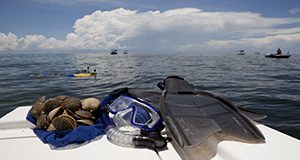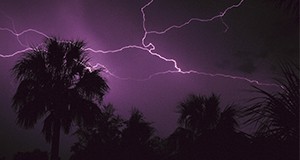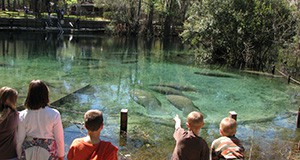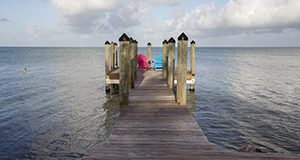UF/IFAS Extension has developed an online survey instrument to improve collection of data on losses to Florida agricultural businesses following disasters and to assist agricultural stakeholders in times of disaster. Florida’s agricultural sector frequently experiences substantial adverse impacts during and after natural disasters. Depending on the size and scope of the disaster, agricultural business owners and employees could suffer reduced earnings, financial insecurity, and social stress, and consumers could experience temporary food insecurity. Timely provision of credible estimates of agricultural losses after a disaster is critical to an official disaster declaration and to timely provision of disaster relief and recovery, but collecting data on agricultural losses can present challenges. This 15-page fact sheet written by Christa Court, Alan Hodges, and Matt Lollar and published by the UF/IFAS Food and Resource Economics Department describes the online survey instrument, explains how to use it, and communicates how the data collected will be used in analyses of economic losses.
https://edis.ifas.ufl.edu/fe1075
Tag: Alan Hodges
Economic Value of Florida Water Resources: Contributions of Tourism and Recreation to the Economy
Recreation is only one of the benefits people receive from water resources. Water is essential for fisheries and aquaculture, for drinking and bathing, for sanitation, and for spiritual and symbolic purposes, among myriad other uses described in the Economic Value of Florida Water Resources series. This 6-page fact sheet written by Tatiana Borisova, Kurt Oehlbeck, Xiang Bi, Tara Wade, Alan Hodges, Kelly Grogan, and Fe Hei and published by the UF/IFAS is the second part of the series. It discusses the contribution of water-based tourism to the economy in various Florida regions, summarizing a number of economic studies and focusing on freshwater-based recreation, such as canoeing, freshwater angling, wildlife watching, lake- or river-shore hiking, spring diving, and more. Readers can pick and choose the studies most relevant to their geographic area or their area of interest.
https://edis.ifas.ufl.edu/fe1065
Assessment of the Economic Impact Associated with the Recreational Scallop Season in Hernando County, Florida

Recreational scalloping has become an increasingly popular activity within the Big Bend region of Florida, and Hernando County is the southern extent of healthy, harvestable bay scallop populations. State resource managers and County administrators expressed a need to know how the recreational scallop season impacts the local economies. This 10-page fact sheet written by Brittany Hall-Scharf, Charles Adams, Alan Hodges, and Stephen Geiger and published by the UF/IFAS Florida Sea Grant College Program and the UF/IFAS Food and Resource Economics Department presents results from a UF/IFAS study to determine the economic benefits derived from coastal and waterway access during recreational scalloping season in Hernando County.
http://edis.ifas.ufl.edu/sg161
Planning for Recreational Waterway Access in Rural Coastal Settings
Increasing demand for waterfront land throughout the United States is a long-term trend with a profound impact on the public's ability to access coasts and waterways for recreation. Overcrowding at beaches, boat ramps, and popular destinations in Florida's densely populated coastal areas leads more Floridians and tourists to consider recreating in rural coastal communities that still offer the solitude and natural settings desired by many. According to a recent report sponsored by the Outdoor Industry Association, the provision of public water access has increased outdoor recreation tourism, which could bring much-needed economic benefits to rural areas. However, many of these communities lack planning resources to measure local support and user needs and to estimate the benefits that investments in public-access infrastructure might bring. This 6-page fact sheet written by Corina Guevara, Charles Sidman, Robert Swett, and Alan Hodges and published by the Florida Sea Grant College Program describes an approach those communities can use to characterize user needs and to quantify local economic benefits derived from public-access infrastructure with a focus on boat ramp facilities.
http://edis.ifas.ufl.edu/sg141


